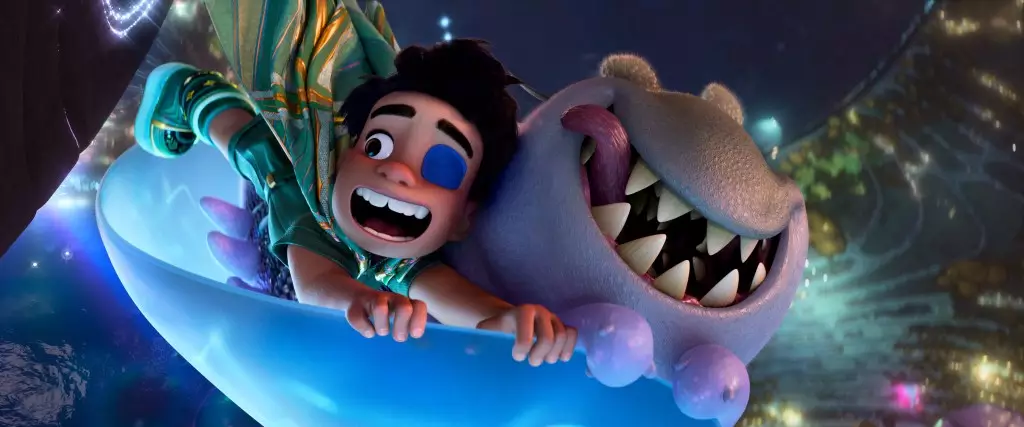Pixar’s latest project, *Elio*, experienced what can only be described as a dismal debut at the box office, generating just $21 million during its opening weekend. It’s a staggering figure, marking the lowest opening for any Pixar film to date. Above all, it’s a disturbing reflection of an underlying trend that could reshape the landscape of animated cinema. Critics may point to its 84% rating on Rotten Tomatoes, which is commendable, but audience reception tells a different story. The film’s performance exemplifies the growing preference for established franchises over original narratives, evidenced by the analysis offered by industry expert Doug Creutz of TD Cowan.
The Shifting Expectations in Animation
According to Creutz, the divide between original animated films and sequels has widened dramatically, particularly in a post-pandemic world where audience behavior is evolving. He argues that studios will likely push fewer original intellectual properties (IPs), resulting in a landscape where risk-taking is increasingly rare. It’s a troubling notion for creatives who thrive on innovation but equally alarming for audiences yearning for fresh stories. The bleak prospects for new animated properties could indeed stifle the growth of a studio’s IP portfolio, crucial for sustaining long-term success, especially for a titan like Disney, which is intricately tied to its animated films.
The Investor Sentiment and Market Reactions
Investor confidence appears fragile in light of *Elio’s* lackluster performance. Disney shares fluctuated early in the trading week, reflecting broader market concerns that hinge upon the performance of their film slate. Although the company’s stock saw a slight recovery, the investors’ initial response signifies a noteworthy shift: individual film successes are becoming less impactful on stock pricing. The ramifications of failed projects extend beyond mere numbers; they signal potential misalignment in Disney’s strategy, especially with the looming threats in its theme park ventures, which rely heavily on compelling, innovative narratives to drive engagement.
The Importance of Intellectual Property in the Theme Park Arena
As Dennis Spiegel, a leading consultant in the theme park industry, stated, intellectual property forms the bedrock of this lucrative sector. With approximately $34 billion in annual revenue, Disney stands tall among competitors; however, the company’s long-term vitality hinges on refreshing its offerings. Current sequels such as *Inside Out 2* and *Moana 2* may shine at the box office, but they don’t herald the birth of new attractions that can sustain visitor interest in the parks. The stark truth is that Disney’s animated properties have fallen short of creating new experiences that captivate audiences within their parks.
The Great Divide: Sequel Success vs. Original Storytelling
Recent statistics support Creutz’s perspective. The average earnings for original animated films released by Disney and Universal since 2022 stand at a mere $412 million—substantially lower than the average of $844 million for sequels. This discrepancy poses a critical question: will Hollywood prioritize the safety of existing franchises over the boldness of crafting original stories? The answer may reshape not just Disney’s future but also the entire animated film industry. As audiences continue to flock to known quantities, original ideas may face an uphill battle, stifling innovation and diversifying voices in storytelling.
